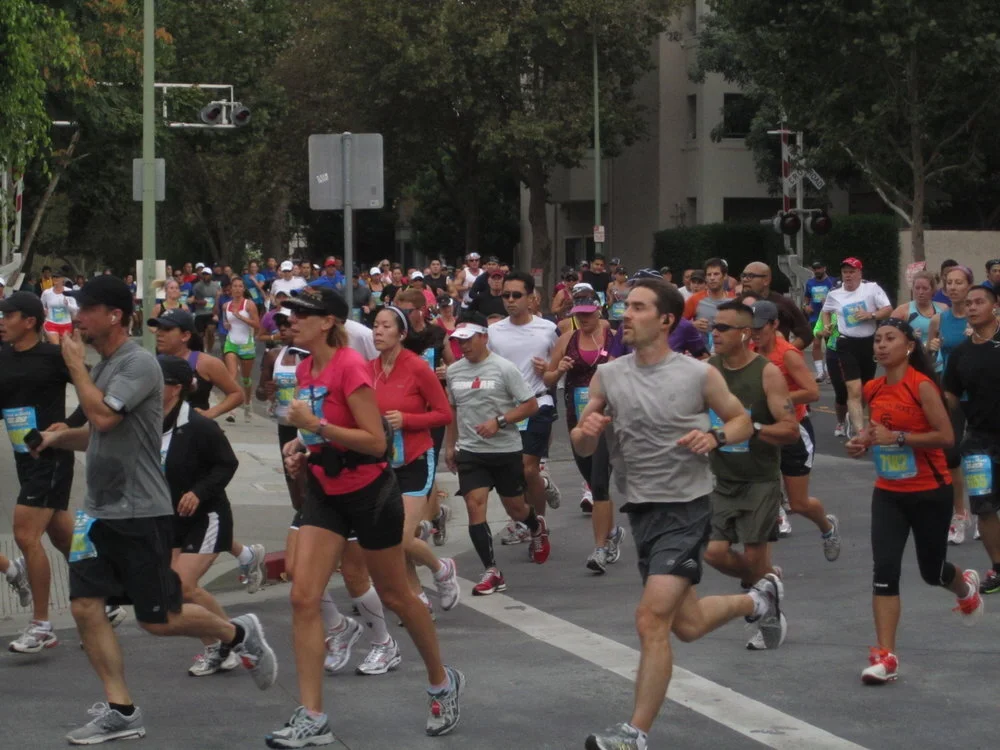The Mental Health Benefits of Exercise
I often joke that I would be crabby without my daily dose of exercise. The truth is I have relied on exercise for many things since I can remember. I can’t imagine a life without it. As a child, being on the swim team allowed me to test my physical limits, engage my competitive spirit, travel and form social connections that have lasted till this day. As an adult, I’ve spent countless hours in the pool, gym and on endless trails and roads - running and cycling through all the ups and downs and changes that come with a few decades on this earth. Whether I’m in the pool at 5 am, or running at 10 am, the obvious impact on my attitude, energy level, confidence and sense of well-being is quite apparent. This is my daily routine.
Not moving my body and exercising is similar to not eating for a day or not sleeping, which are two things I’ll never do by choice. I’ve completed a doctoral program without ever staying up all night, or skipping a day of exercise. I have never fasted or skipped a meal because staying away from food would impact me negatively. I have formed and committed to healthy relationships and exercise helps support my ability to be present with others. My body and mind is created to move, eat, rest, and connect socially. These basic needs ground me in my every day life so I prioritize them. Everything else I do is built on this foundation. Being off in one of these areas will definitely impact the other activities of my life.
Research also shows that the impact of exercise can be so tremendous for our physical and mental health.
I’m going to list just a few benefits of cardiovascular exercise (with several examples from what I know best which is swimming, running, cycling):
Exercise boosts your mood – after a run (however difficult and challenging) one is in a better mood – you may feel more talkative, positive, creative or inspired – I tend to enjoy writing and working right after I exercise as I feel more creative and hopeful. This boosted mood, creativity and confidence have allowed me to create a work and life path that I want and it's allowed me to take chances and try new things
Having a regular running or cardio routine can give you a pattern of stability that grounds your day e.g. you know that each day you can count on doing a physical activity that is generally under your control. If you plan other events, such as training for a marathon, a triathlon, a swimming competition, you have several months planned that are focused and keep you exercising towards a goal
Exercise regulates your eating patterns – if you are working out enough and paying attention to your body, you will know when you are hungry and what amounts and types of food will sustain your level of activity and nurture your body
You feel accomplished – whether you’ve done a challenging work out and are proud of pushing through difficulties, or you’ve had an uninspiring workout in which you had to force yourself out of the house – you can still be proud of yourself for doing something that you know is good and getting out of the house. This aspect can build positive self-worth
Endurance sports and anything that challenges you both mentally and physically can be used as metaphors to help remind you that you can get through difficulties in life and that there are always ups and downs that you go through. Getting through a tough run or a challenging bike ride can teach us how to get through challenges in relationships, work and life if we apply the same principles that helped us get through the run….for example, not giving up, slowing down if needed, switching our self-talk to help us get through what we think we can’t get through
Exercise regulates and improves sleep and getting up at 4 in the morning to exercise is also a strong motivator to get to bed early!
Exercise can reduce addictive tendencies and cravings
It can help build a sense of calm and meditation which helps us relax – and with repetitive endurance sports, we are able to find peace doing challenging tasks even on our own. A long hilly runs in the woods can bring a sense of calm, peace, and connection to nature
It can help build community, love relationships and friendships– for those who feel socially awkward or shy, joining a sports group where you are working toward a common goal, but still have time to talk, takes away pressure from just going out and making friends. Additionally, the positive mood and endorphins help people connect more without the social barriers that may be present in other social environments
Exercise helps improve concentration, work-efficiency, and increases energy levels, which in turn make you feel positive about yourself and the choices you are making. You feel pride in your accomplishments which come about from the mental agency that you have to get yourself out exercising even when it’s raining, you’re not in the mood, you’re grumpy or tired or heartbroken. You can take pride in knowing that you are taking care of yourself and you can enjoy the boost you get from this positive activity
I also like the Mayo Clinic’s 7 Benefits of Regular Exercise.
Dr. Cory Nyamora is an endurance sports coach, a licensed clinical psychologist, and the founder of Endurance – A Sports & Psychology Center, Inc. He provides endurance coaching for beginner and experienced athletes, as well as psychotherapy services to children, adults, and families. Find out more at www.runinkenya.com and www.endurancecenter.org.


